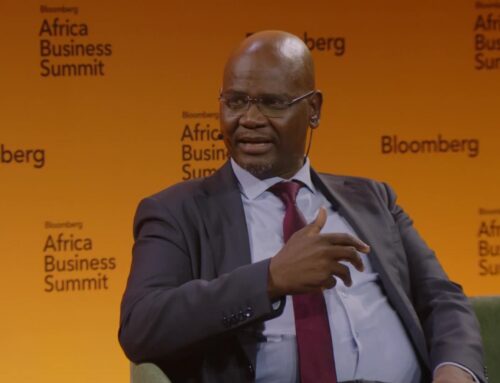Meta (Facebook) Ushers In The AI Audit Era. Can Blockchain Verify?
November 17, 2025
AI Audits by Meta (formerly Facebook) ? While catching up this weekend on all the tech news, something caught my eye. Meta is now going to be doing AI audits, not for customers, but for their employee performance appraisals.
They are starting in 2025 but on a more manual basis, but in 2026 will supplement with AI assistants that can help with the output that each employee has using AI tools.
Why did this stand out to me? I think that this will become a trend in the tech world, where companies are now moving from AI for good looks to AI for business outcome. I wrote a Forbes article on ROI and AI that got a lot of feedback. People told me it was too early to look for real results.
Well, it appears that we are now ready to start looking at the output that the use of AI is bringing to the party.
My prediction is that Meta will be the first and not the only company in Silicon Valley doing this appraisal system, and that it will expand globally as it becomes more of the norm.
What did Meta (Facebook) Announce? Signaling The End of AI as Optional
According to Business Insider, Meta announced a framework so that every employee can show how the use of AI contributed to their outputs. Managers now will be evaluating the success employees have with AI tools, more than other outcomes. Some of the metrics they stated that managers will look for are whether your AI usage cut the time of completing your project, or helped you discover or grow a new market. In fact, there will be an AI Performance Assistant that will assist employees as well.
They called it an AI Audit.
Amy Webb, the futurist, recently commented on Linkedin that “trends don’t predict the future. Convergences do. The future doesn’t arrive one trend at a time — it emerges when multiple signals collide. That’s the part everyone misses.”
It is this convergence that signals to me that AI will no longer be optional in corporate America.
The convergences I see are three:
1/ AI Agents are being used to get work done faster. Liza Adams just showcased at the Maicon Premier Marketing Conference AI as teammates for Marketing. One person at the conference said that they are already using Claude to grow their open rate for emails by 40%.
And coders are using it to cut their debugging time, and hopefully to eliminate the documentation that they so hate to write.
Even sales teams are using AI to prioritize prospects to focus on with some weighted analytics based on past sales success.
2/ “You cannot manage what you cannot see and measure.” This is a direct quote from my very first manager, John Welch. In order to continue to justify investments, managers and executives need a way to quantify success and cost. This audit is coming at a time when many are discussing the “AI Bubble” and are looking for proof of success.
The MIT study that showed only 5% of AI projects are successful was a bit of a wake up call.
3/ Boards and VCs are now looking for proof.
Have you noticed that AI is now mentioned on almost all earning calls? Boards are held responsible for investments and their outputs. VCs have invested almost $193B , according to Bloomberg, in AI companies and now are looking for returns.
The convergence of these three areas of human behavior, technology, and management of people and returns will drive other companies to pursue similar changes to their appraisal systems.
But How Does Meta (Facebook) Really Attribute Success and to What?
The question that emerges from this use of AI tools to check on your AI Tool usage and success is: How do you prove what was created by AI or an Agent, and how do you show what was created by a Human?
Some examples came to my mind.
I used to be a CMO at IBM. If my marketing team launched a campaign that drove $2M in revenue vs a target of $1M, who claims credit for the Ad copy that made it successful? How do I verify the prompt? How do I see who refined the output of that AI Agent or Tool? And then who thought of the campaign in the first place.
Or when, in the past, I managed an Engineering team at AWS, I can think of another development scenario. Let’s say that one of my engineers solves a critical problem. Where did the solution come from? ChatGPT? Grok? Or Github Co-Pilot or did I just have a super smart engineer?
So now the question to me is “what is the audit trail” of this AI Audit.
This is where blockchain proves its value. Blockchain is a ledger that could create a record of how, when and by whom work got down.
In theory, an organization could log the output, and track the AI model, Agent, human or human refinement on the blockchain.
In practice, in marketing it would look like this example. The marketing team uses AI to write the Ad copy for a campaign. Blockchain then logs when the AI created the draft, which model it used, or version of the AI Agent. And it could track the human elements of edits, and refinements. The trust of authorship months later for performance would have been saved onchain.
Blockchain adds the trusted verification for AI today (per Forbes, many applications already combine the two technologies), and could be applied to this scenario.
The Meta (Facebook) Shift Is Happening Now
This shift to learning about the outputs of AI is happening now. In 2025, many companies used AI to get visibility or say they were using it. Some just used ChatGPT to rewrite emails. But in 2026, all companies will need to show their results.
The smart advice? Start preparing now.
For a first step, organizations should track AI usage across teams. Build dashboards to see when and how AI gets used to provide visibility.
The team should document wins, and share those across the organization. Any measurable gain like time saved, errors avoided or additional revenue generated should be recorded.
Companies should consider digital credentials to have a blockchain record of employee AI proficiency. I love what NTT Data is doing, recording levels of expertise like Karate with the white belt, yellow belt or even black belt of value.
Culture eats strategy for lunch is one of my favorite quotes. Make sure you are shifting the culture as you begin this work. Employees should view AI favorably not as cheating. It should be talked about as a core skill that can help employees get ahead in their career.
And for all those individual contributors, the message is clear. Be ready to be asked how AI helped you in your work and your outcomes. Be proactive in speaking up.
And for leaders, start building systems that can answer these questions in a measurable and verifiable way.
Proof Of Work For Meta (Facebook)
Proof of work was used early on by Bitcoin where miners would solve cryptographic puzzles to validate their work.
The next few years will start to redefine the Proof of Work meaning.
Meta’s new policy offers us some insight into where this is headed. They are focused on a culture of AI Proficiency and more importantly value from AI Agents and tools.
They won’t be the only ones. And to verify that work Blockchain technology was invented for example that purpose to log that proof of verification.
The AI Audit is starting at Meta (formerly Facebook) today and many more companies in the future.
Search
RECENT PRESS RELEASES
Related Post


